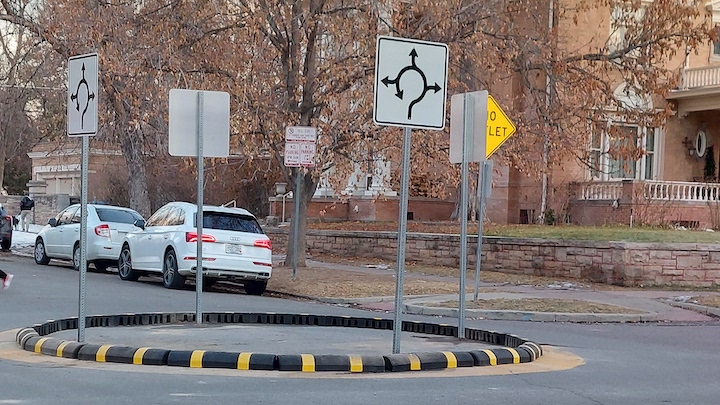It’s been less than a year since Denver opened its first shared streets, allowing people to walk, roll, and play in public space that had long been given over to cars. Last April, after a Denver Streets Partnership survey of nearly 1,500 residents indicated strong support for limiting traffic on streets and opening them for people, the Denver Department of Transportation and Infrastructure (DOTI) opened 5.5 miles of shared streets in residential and commercial areas and an additional 10.2 miles of streets in car-free parks. In June, DOTI added 2.5 miles of additional shared streets.
As more people stayed in their neighborhoods and fewer drove to work, this reimagined street space proved to be immensely popular, with some Denverites even calling for permanent shared streets. Now, we are excited to see DOTI taking steps toward making that a reality. Three of the shared streets – while still designated as temporary – are getting upgrades aimed at improving safety, visibility, and comfort for people on the street. On 16th Avenue in City Park West, 11th Avenue in Capitol Hill, and Bayaud Avenue in the Speer neighborhood, DOTI is installing traffic calming treatments and improved signage intended to slow vehicles and alert users they are on a shared street.
We are especially interested in the improvements coming to Bayaud Avenue starting next week. The new design will incorporate elements from another DOTI initiative we’ve been following very closely, the Community Transportation Networks. For the last year, the City has been gathering community feedback on their plans to expand Denver’s bicycle network by 125 miles over the next three years. Bayaud Avenue was designated in the South Central Network plans as a neighborhood bikeway between Cherokee and Downing Streets, so DOTI is taking this opportunity to enhance the current shared street by testing the planned bikeway design using temporary materials. New elements coming to the street include mini traffic circles, paint-and-bollard curb extensions, extended no parking zones at intersections, and traffic diverters. The combination of these different treatments will encourage slower driving, reduce through traffic, and create a more comfortable atmosphere for walking, biking, and rolling.
Each of the three shared streets are a little different from each other in order to see which designs and materials are most effective. We look forward to hearing what people think about the improvements. Just like last year, we’ll survey the community as more people have the opportunity to experience the upgraded shared streets. Stay tuned!
More info on the Denver DOTI page
